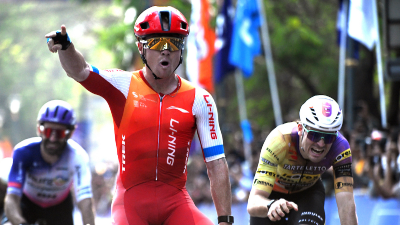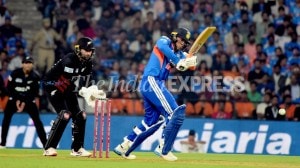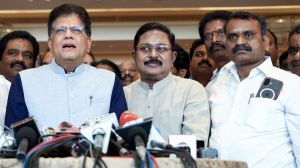PM goes to Valley
Prime Minister Manmohan Singh is slated to visit Kashmir in the week after August 15, taking his idea of a 8216;8216;caring8217;8217; go...

Prime Minister Manmohan Singh is slated to visit Kashmir in the week after August 15, taking his idea of a 8216;8216;caring8217;8217; government to yet another border state of India. Across the LoC, Pakistan is upset because India refuses to commit itself to a time-frame for resolving Kashmir. Within, the Hurriyat talks with the Centre have crumbled, while the Geelani faction has floated a new party. The PM8217;s assessment of things will definitely feed into the Foreign Secretary-level talks on September 4, to be followed by a two-day ministerial between Natwar Singh and Khurshid Kasuri.
The long shadow of ex-PM Atal Behari Vajpayee8217;s visit to Srinagar in April last will also follow Singh. It was on that occasion that Vajpayee, with an eye on Pakistan, offered reconciliation to Kashmir.
Kargil cloud over Siachen
The second day of the two-day meeting on Siachen between the Defence Secretaries of India and Pakistan last week ended on a relatively promising note. Meetings with Defence Minister Pranab Mukherjee and National Security Advisor J N Dixit also threw up additional proposals, including the possibility of exchanging maps signed by each side, stating their positions on the glacier. The past was also brought up to service the present8212;when N N Vohra and Salim Abbas Jilani came near to an agreement in 19928212;with the Pakistani side pointing out that at the time too, Islamabad had refused to sign maps showing Indian soldiers on the heights of Saltoro. That, instead, both had agreed to append annexures to the main agreement, where this would be stated.
Problem is, the betrayal of trust at Kargil in 1999 in the Indian mind supercedes everything that came before. New Delhi wants to know that if the soldiers indeed come down from the Saltoro, what guarantee is it that Pakistan won8217;t retake the heights? It seems now that Islamabad did offer guarantees that this wouldn8217;t happen, open to verification by the international community. General Hamid Nawaz even proposed a bilateral monitoring mechanism. The meeting ended on a sober note, promising to take the talks further.
From General, with love
The interconnection between the Musharraf regime and the Bush administration is an old story, made more complex by the weft of Al Qaeda deceit and the warp of the upcoming US presidential elections. A couple of weeks ago, America8217;s prestigious New Republic publication forecast that a major Al Qaeda operative would be caught just around the time Senator John Kerry accepted the Democratic Party8217;s nomination. Turned out that Ahmed Khalfan Ghailani, who is on the FBI list of 22 8216;8216;most wanted8217;8217;, has a reward of 5 million on his head, and is an accused in the 1998 bombings of the US embassies in Kenya and Tanzania was nabbed in Gujrat, Pakistan8212;just a few hours before Kerry8217;s acceptance speech in Boston.
Diplomacy, after a fashion
Bangladesh is in the news again, this time for the best of reasons. Turns out that a Bangladesh Fashion Week held in Dhaka for the first time ever was sold out to enthusiastic crowds in early July, and attended by the Who8217;s Who in that country. For a change, India and Bangladesh too put aside their predictable acrimony and decided that fashion had been too long subject to politically correct politics. Now they were determined to also have fun. So Indian models like Jesse Randhawa, Nayanika Chatterjee, Tupur Chatterji, Zulfi Syed etc were flown in to walk the ramp along with a score or more of Bangla beauties. The Bengali TV channel Tara Bangla, which sponsored the show along with a Dhaka retail store called Aarong, intelligently decided to cut cross-border tape by fielding Lita Chowdhury, wife of Bangladesh Foreign Secretary Shamshad Chowdhury, and a designer in her own right, in the show.
Clearly, the good news refuses to end. Towards the end of August, New Delhi and Dhaka will revive a Track II dialogue that promises to go beyond the usual zeal to score points. Led by former Bangladesh high commissioner Deb Mukherjee and development economist Rehman Sobhan, the Ford Foundation-funded dialogue is different because Dhaka has shown interest in also sending a government representative to participate in the deliberations.
- 01
- 02
- 03
- 04
- 05































